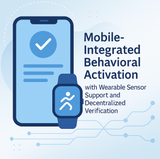Innovative Healthcare Technologies: What's New and Exciting in the Market
In the ever-evolving landscape of healthcare, technology continues to drive remarkable advancements, revolutionizing patient care, diagnosis, treatment, and overall wellness. From groundbreaking medical devices to cutting-edge software solutions, the healthcare technology sector is teeming with innovation. In this blog post, we delve into some of the most exciting and transformative healthcare technologies currently making waves in the market.
- Telemedicine and Remote Patient Monitoring: Telemedicine has emerged as a game-changer, especially in the wake of the COVID-19 pandemic. It enables healthcare professionals to deliver care remotely, allowing patients to consult with their doctors from the comfort of their homes. Coupled with remote patient monitoring devices, such as wearable sensors and mobile apps, telemedicine facilitates continuous monitoring of vital signs and health metrics, enhancing patient outcomes and reducing the burden on healthcare facilities.
- Artificial Intelligence (AI) and Machine Learning: AI and machine learning algorithms are reshaping various facets of healthcare, from diagnostics to personalized treatment plans. These technologies can analyze vast amounts of medical data, identify patterns, and provide actionable insights to healthcare providers. AI-powered diagnostic tools, for instance, can assist radiologists in detecting abnormalities on medical images with greater accuracy and efficiency, leading to faster diagnosis and improved patient care.
- 3D Printing in Healthcare: 3D printing technology has opened up new possibilities in healthcare, enabling the fabrication of customized medical implants, prosthetics, and anatomical models. Surgeons can use 3D-printed models to plan complex surgeries, improving precision and patient outcomes. Moreover, 3D bioprinting holds promise for tissue engineering and organ transplantation, offering hope for addressing organ shortages and advancing regenerative medicine.
- Blockchain for Healthcare Data Management: Blockchain technology, known for its security and immutability, is being leveraged to enhance healthcare data management and interoperability. By providing a secure and decentralized platform for storing and sharing patient records, blockchain facilitates seamless exchange of medical information while ensuring privacy and data integrity. This can streamline processes such as electronic health records (EHRs) management, medical billing, and clinical trials management.
- Virtual Reality (VR) and Augmented Reality (AR) in Medical Training and Therapy: VR and AR technologies are transforming medical education and therapy by creating immersive and interactive experiences. Medical students can simulate surgical procedures or explore anatomical structures in virtual environments, enhancing learning outcomes and skill acquisition. Additionally, VR-based therapies are being used to manage pain, anxiety, and phobias, offering non-pharmacological alternatives for patient care.
- Robotics-Assisted Surgery: Robotics-assisted surgical systems enable surgeons to perform minimally invasive procedures with enhanced precision and control. These systems combine advanced robotics, imaging, and navigation technologies to improve surgical outcomes, reduce complications, and shorten recovery times. From cardiac and orthopedic surgeries to urological and gynecological procedures, robotics-assisted surgery is revolutionizing the operating room.
- Smart Wearable Devices for Health Monitoring: The proliferation of smart wearable devices, such as fitness trackers, smartwatches, and biosensors, has empowered individuals to take control of their health and wellness. These devices can monitor various health metrics, including heart rate, activity levels, sleep patterns, and more, providing users with real-time feedback and insights into their overall health status. Integrating seamlessly with mobile apps and cloud platforms, smart wearables facilitate continuous health monitoring and promote preventive care.
Conclusively, the healthcare technology landscape is brimming with innovation, with new breakthroughs emerging at a rapid pace. From telemedicine and AI to 3D printing and blockchain, these technologies hold immense potential to transform the way we deliver and receive healthcare. By embracing innovation and leveraging cutting-edge technologies, we can usher in a new era of personalized, efficient, and accessible healthcare for all.
Truway Health News & Insights
Consistency Over Intensity: How to Make Wellness Stick
Consistency Over Intensity: How to Make Wellness Stick Wellness and self-care goals often start with...
Mobile‑Integrated Behavioral Activation With Wearable Sensor Support and Decentralized Verification: Protocol for a Randomized Behavioral Trial
Abstract Background: Behavioral activation delivered through mobile platforms has shown promise for...
When Your Body Won’t Settle Down Everyday Habits That Calm Inflammation
When Your Body Won’t Settle Down: Everyday Habits That Calm Inflammation Inflammation is a normal bi...
Truway Health Launches Innovative In-Vitro Cryo-Therapeutic Clinical Study
Advancing Cellular Preservation, Precision Therapy, and Translational Science Truway Health, Inc. is...
Everyday Stress, Handled: Practical Ways to Feel More Steady Day to Day
Everyday Stress, Handled: Practical Ways to Feel More Steady Day to Day Everyday stress is the mind-...
Creating Your Personalized Health Roadmap: Break Bad Habits and Build Long-Term Well-Being
Creating Your Personalized Health Roadmap: Break Bad Habits and Build Long-Term Well-Being Improving...







